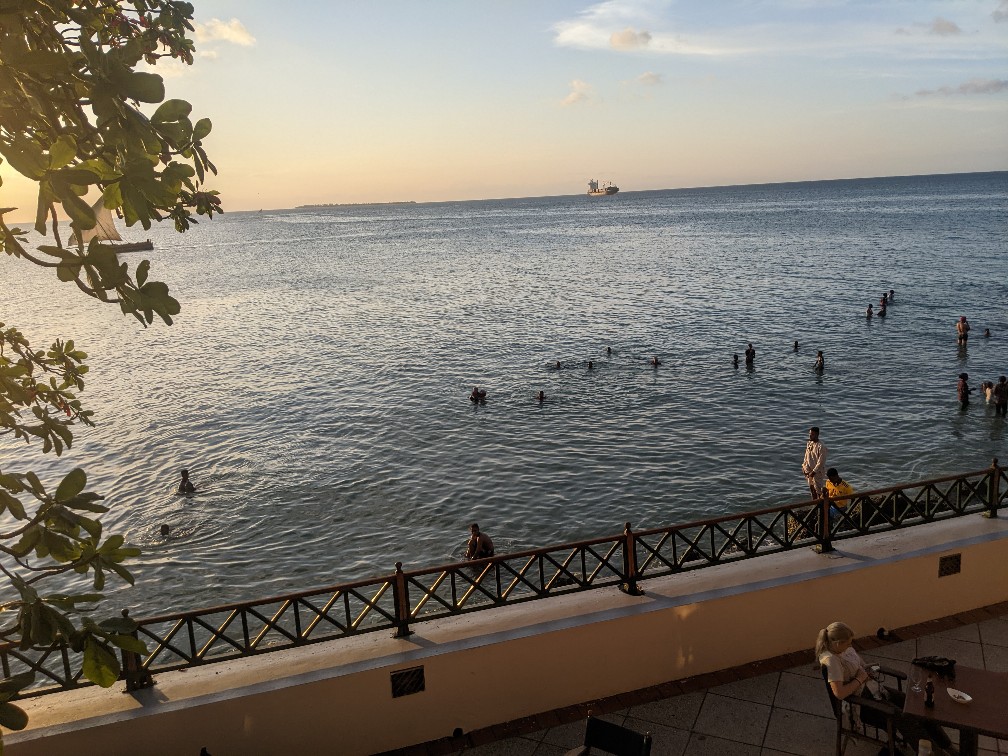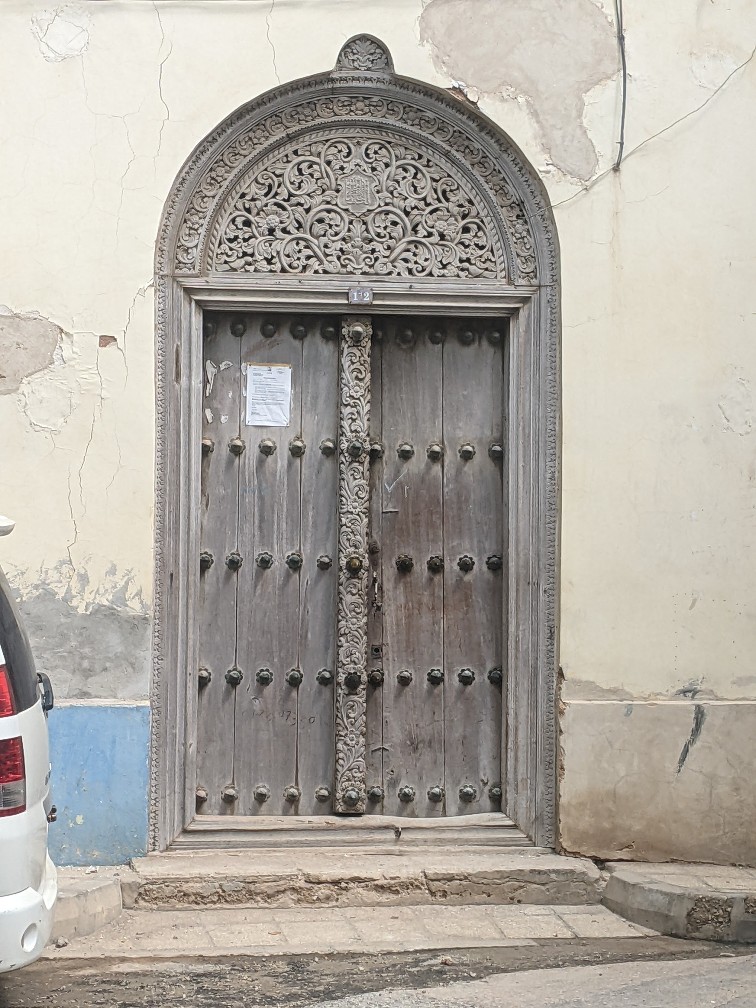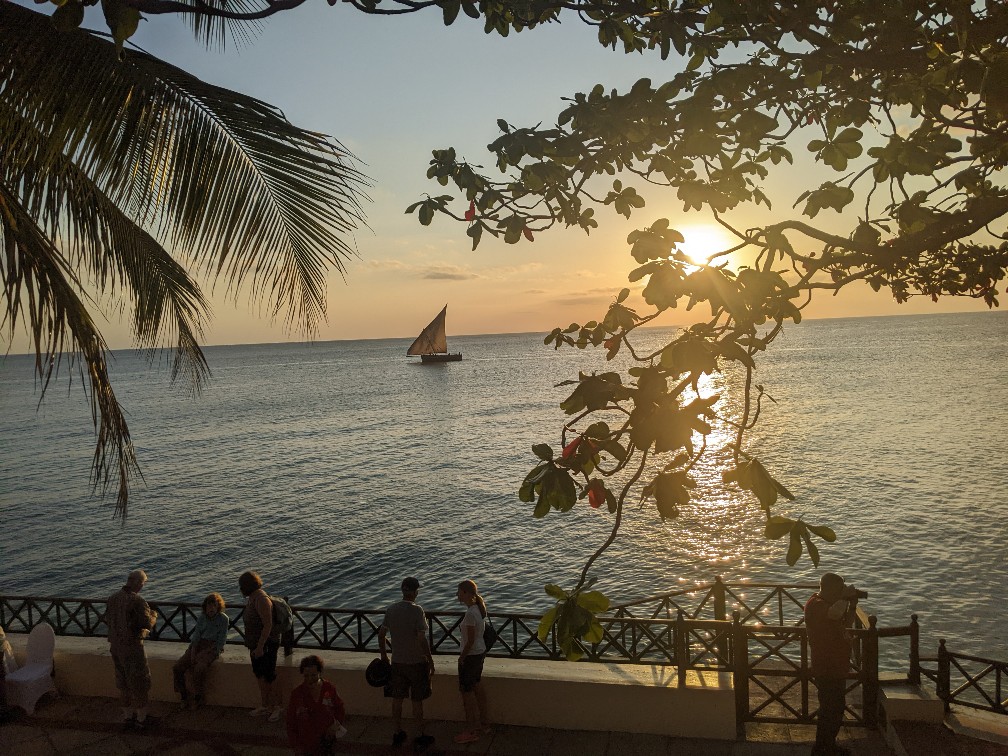We were up early to go to see the red colobus monkeys which are endemic to Zanzibar. It was a 45 minute drive to Jozani National Park. The road was one of the best roads we have been on in Africa.
Ali commented on how much the population had spread into the “burbs” of Stone Town. There has been huge population growth, there were 475k people in Zanzibar in 1978 and today they estimate the population at 1.8 million The road was widened several years ago and some of the houses had been chopped through the middle to make space for the road. Many of these houses still showed the scars of the chopping. There was a lot of poverty and people sitting around. Ali told us that the unemployment rate is 30%.
We arrived at the park at the same time as several buses full of people. There is a cruise ship in the harbor and one of the excursions is to see the red colobus monkeys. There was a monkey family living right by the parking lot, so we saw them pretty much immediately. These monkeys eat unripe fruit because sugar is toxic to them. If they inadvertently eat sugar they will go in search of charcoal to neutralize the sugar. They have very long tails because they only have four fingers on their hands and no thumb. They use the tails to help hold on to branches. They were playing/fighting and they fell off the branches a lot. These monkeys are on the endangered species list. Only about 5,000 Colobus monkeys remain today.
Also living in the park is the Zanzibar blue monkey. These monkeys look quite similar to the red colobus monkeys, but they have a thumb and a shorter tail. Their diet does not overlap with the red colobus so they don’t compete for food and live together peacefully.
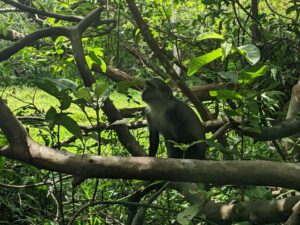
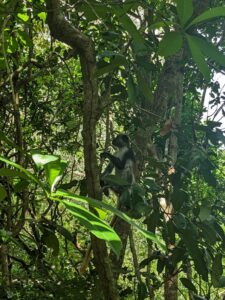
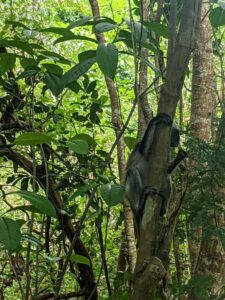
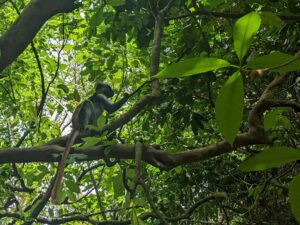
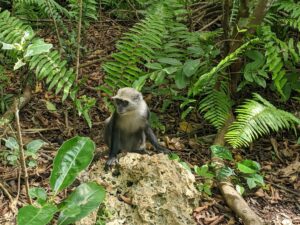
After watching the monkeys we took a walk through the forest and Ali pointed out many different species of trees. There were a lot of small mahogany trees which are protected. Hopefully they’ll grow to be big mahogany trees.
Next we crossed the main road and went to look at the mangrove trees. I learned a new fact about mangrove trees. Mangrove trees live in brackish water so they need to eliminate the salt that they take in. They do this by pushing the salt to a few of the leaves which cause the leaves to turn yellow and fall off.
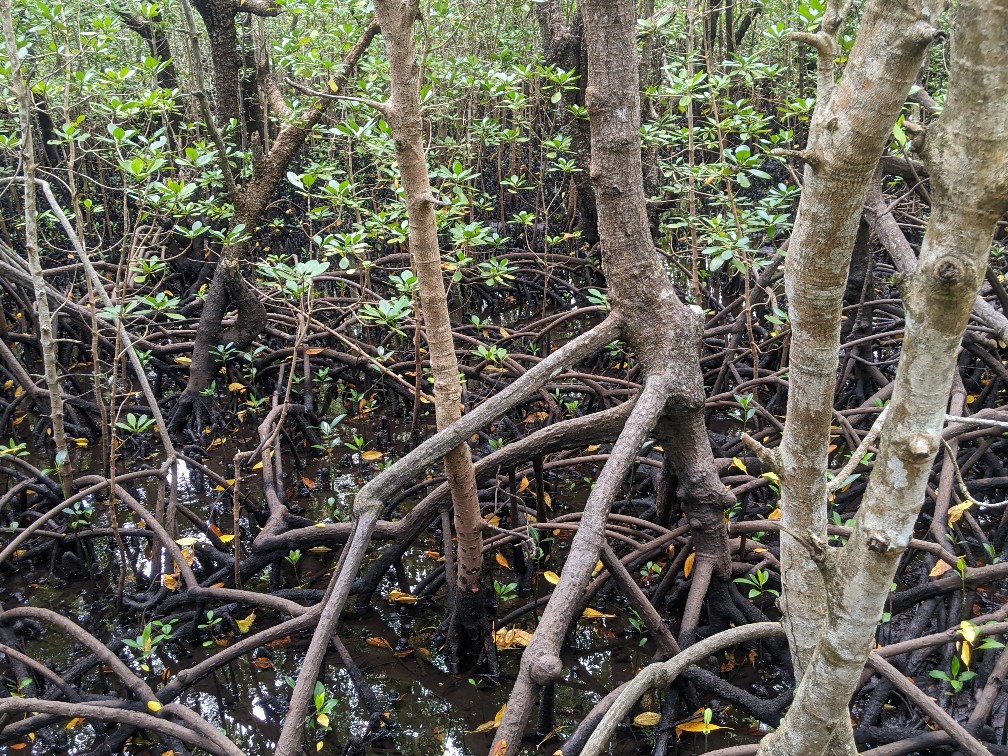
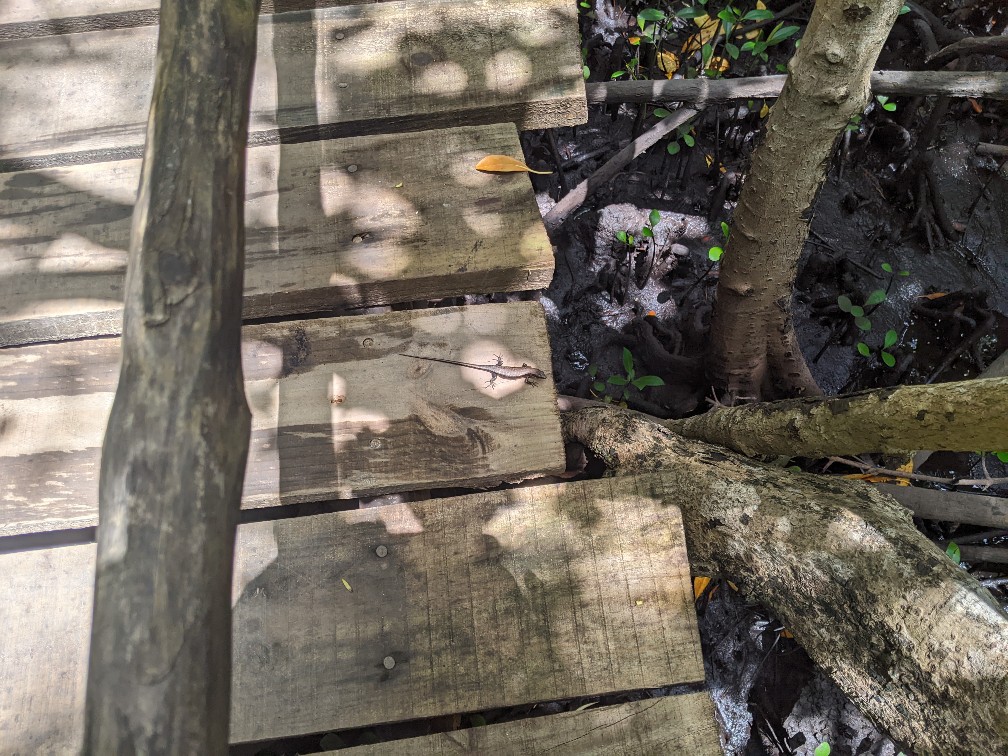
We watched a group of singers and dancers at the park. Ali said they were for the tourists but more importantly they were trying to spark an interest in younger Tanzanians to preserve their culture.
We had a late lunch t a a good restaurant up the street from our hotel. That afternoon we got caught up on the blog. We had a very light dinner at the hotel and then lights out.
